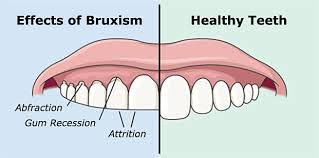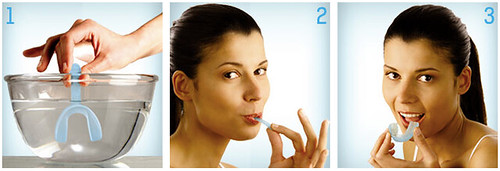 People suffer from numerous types of dental conditions, just as they do from various types of health conditions. Some of these conditions are more serious than others, and while there is treatment for some types of dental conditions, others simply require preventative actions to ensure that no major dental problems arise because of the conditions. One of the dental conditions that surprisingly many people have is bruxism.
People suffer from numerous types of dental conditions, just as they do from various types of health conditions. Some of these conditions are more serious than others, and while there is treatment for some types of dental conditions, others simply require preventative actions to ensure that no major dental problems arise because of the conditions. One of the dental conditions that surprisingly many people have is bruxism.
What is Bruxism?
Bruxism is the technical term for teeth grinding. Although most people probably grind and clench their teeth at times, when grinding and clenching occurs on a regular basis, it can lead to dental problems. Frequent teeth grinding, most notably teeth grinding that occurs at night, is referred to as bruxism. Although occasional bruxism usually doesn’t cause any harm to the teeth, bruxism that occurs every night or pretty much every night can lead to damaged teeth and other oral health complications.
Why Do People Grind Their Teeth?
Occasional teeth grinding during the day is most likely caused by stress or anxiety, but teeth grinding that occurs at night is most probably caused by a deeper dental problem like an abnormal bite, crooked teeth or even missing teeth. Certain sleep disorders like sleep apnea can also be the cause of nighttime teeth grinding. Most people don’t even realize that they suffer from bruxism until a loved one who sleeps with them at night informs them of their nighttime actions. For those people who sleep alone, tell-tale signs of bruxism include constant dull headaches and sore jaws upon awakening. If you suspect that you might be grinding your teeth at night, notify your dentist. Dentists know the signs to look for to determine whether or not you’ve been grinding your teeth at night by examining the tenderness of your jaw as well as the wear on your teeth.
Solutions for Teeth Grinding
 The most common solution for teeth grinding is to wear a mouth guard at night. A mouth guard is essentially a tray that fits between your upper and lower teeth and keeps you from grinding them together, harming the teeth. However, if a sleeping disorder is causing you to grind your teeth, then seeking treatment for the disorder could help reduce or eliminate the bruxism. If stress and anxiety are the primary causes of your bruxism, then soothing exercises and muscle relaxers are among the types of options that are offered to deal with the condition. Some dentists advise making lifestyle changes as well, such as reducing the amount of caffeinated and alcoholic beverages consumed since these seem to lead to a higher rate of bruxism and avoid chewing gum and chewing on obtains to train yourself not to get into a habit of grinding your teeth on something all the time.
The most common solution for teeth grinding is to wear a mouth guard at night. A mouth guard is essentially a tray that fits between your upper and lower teeth and keeps you from grinding them together, harming the teeth. However, if a sleeping disorder is causing you to grind your teeth, then seeking treatment for the disorder could help reduce or eliminate the bruxism. If stress and anxiety are the primary causes of your bruxism, then soothing exercises and muscle relaxers are among the types of options that are offered to deal with the condition. Some dentists advise making lifestyle changes as well, such as reducing the amount of caffeinated and alcoholic beverages consumed since these seem to lead to a higher rate of bruxism and avoid chewing gum and chewing on obtains to train yourself not to get into a habit of grinding your teeth on something all the time.
References:
Mayo Clinic: “Bruxism/Teeth Grinding.” Retrieved on November 17, 2015, from http://www.mayoclinic.org/diseases-conditions/bruxism/basics/definition/con-20029395 .
MedlinePlus: “Bruxism.” Retrieved on November 17, 2015, from https://www.nlm.nih.gov/medlineplus/ency/article/001413.htm .
Mayo Clinic
13400 E. Shea Blvd.
Scottsdale, AZ 85259
480-301-8000
www.mayoclinic.org
MedlinePlus
8600 Rockville Pike
Bethesda, MD 20894
(847) 949-5500
www.nlm.nih.gov
Images:
https://farm1.staticflickr.com/542/19951929518_883a338cc2.jpg
https://farm8.staticflickr.com/7022/13896880675_9f4d0eeccb.jpg